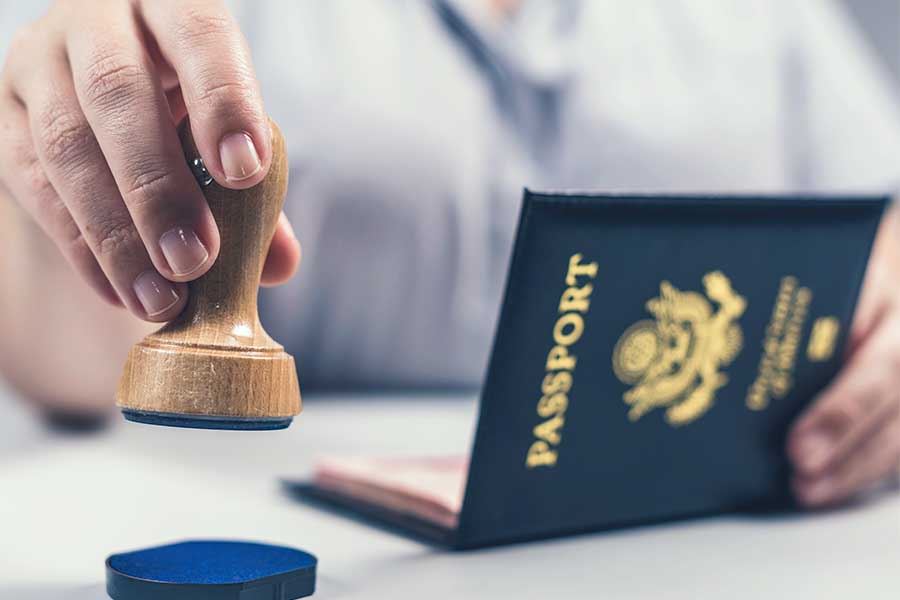
Notaries frequently ask the NNA if they may certify copies of passports for customers. Before doing so, you need to answer 3 important questions:
- Does your state allow you to certify copies of documents?
- Are there restrictions on certifying copies of passports in your state?
- Does the request meet all other requirements for copy certification?
Does your state allow you to certify copies of documents?
The only way a passport can be “notarized” is by certifying a copy of the original passport. So, you should first find out if your state authorizes you to certify copies of documents. You can find a list of each state’s copy certification rules in “How to certify a copy of a document.”
If you are commissioned in a state where Notaries cannot certify copies, such as Michigan, Nebraska, North Carolina, Ohio, South Carolina or South Dakota, then you cannot notarize the passport.
If your state authorizes copy certification by Notaries, you can move on to the next step: Checking what type of documents are permitted for copy certification in your state.
Are there restrictions on certifying copies of passports in your state?
Some states restrict the type of document copies that Notaries may certify. For example, in Alaska, New York and Tennessee, Notaries may only certify tangible copies of electronic records, so certifying a copy of a passport (which is a physical document) is not authorized.
Arkansas Notaries may not certify copies of documents issued by the U.S. Department of State (except passports) or documents issued by U.S. Citizenship and Immigration Services.
In California, Notaries may only certify copies of power of attorney documents or an entry in the Notary’s journal if requested by the Secretary of State or a court. California Notaries are not allowed to certify copies of any other types of documents, so they cannot notarize passports.
Texas is tricky. In Texas, Notaries may only certify a copy if the original document cannot be recorded with a specific government entity, such as the Secretary of State’s office, a court of law, or a county clerk. Any document that can potentially be recorded with an agency cannot be copy-certified. Because it is not always clear if a passport will or will not be recorded with some type of government entity at some point and the Secretary of State’s office has told the NNA in the past that a passport is a potentially recordable document, the safest course for Texas Notaries is to avoid certifying copies of passports.
Conversely, Iowa’s Secretary of State has published a Notary FAQ that specifically lists passports as a document that can have copies certified by Iowa Notaries.
Does the request meet all other copy certification requirements?
If your state permits you to certify copies and does not exclude passports, the final step is to confirm the request meets all your state’s other copy certification requirements. For example, in Florida, the Notary must supervise the making of the copy that they are going to certify.
In other states, such as Arkansas, Connecticut, and Delaware, Notaries must either supervise the copying of the original document or make the copy themselves. Arkansas Notaries must keep a copy of the document for their records to confirm that the certified document was not altered.
Pennsylvania Notaries must compare the original passport and the copy to confirm that the copy is a complete and accurate reproduction of the original.
Before obtaining a certified copy in West Virginia, a customer must give the Notary a written statement that the requested certified copy cannot be obtained from the office of a recorder, or custodian of public documents in West Virginia, that making a copy of the document does not violate state or federal law, and that the Notary keeps a copy on file.
Whether you are certifying a copy of a passport or any other document, always make sure that you follow all rules set by your state’s Notary laws.
If you are an NNA member and have questions about notarizing a passport or copy certification procedures for your state, you can contact the NNA Notary Hotline for assistance at 1-888-876-0827 or by filling out our online form.
David Thun is the Editorial Manager at the National Notary Association.